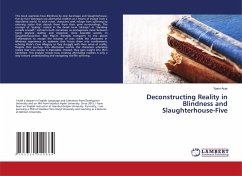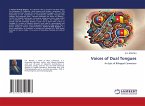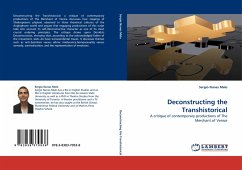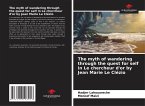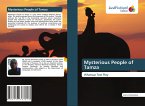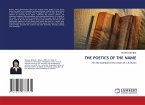This book examines how Blindness by José Saramago and Slaughterhouse-Five by Kurt Vonnegut use alternative realities as a means of escape from a disordered world. In each novel, characters seek refuge from suffering by entering states that detach them from their grim surroundings. The concept of "ecstasy," rooted in the Greek term "ekstasis," or "standing outside oneself," connects both narratives, as protagonists move between harsh physical realities and imagined, more bearable worlds. In Slaughterhouse-Five, Billy Pilgrim mentally transports to the planet Tralfamadore to escape the traumas of war, while the characters in Blindness experience an epidemic that forces them into confinement, echoing Plato's Cave Allegory as they struggle with their sense of reality. Despite their journeys into alternative worlds, the characters ultimately realize that true escape is impossible; instead, they gain insight into life's hardships. This analysis reveals how creating alternative realities is only a step toward understanding and navigating real-life suffering.

